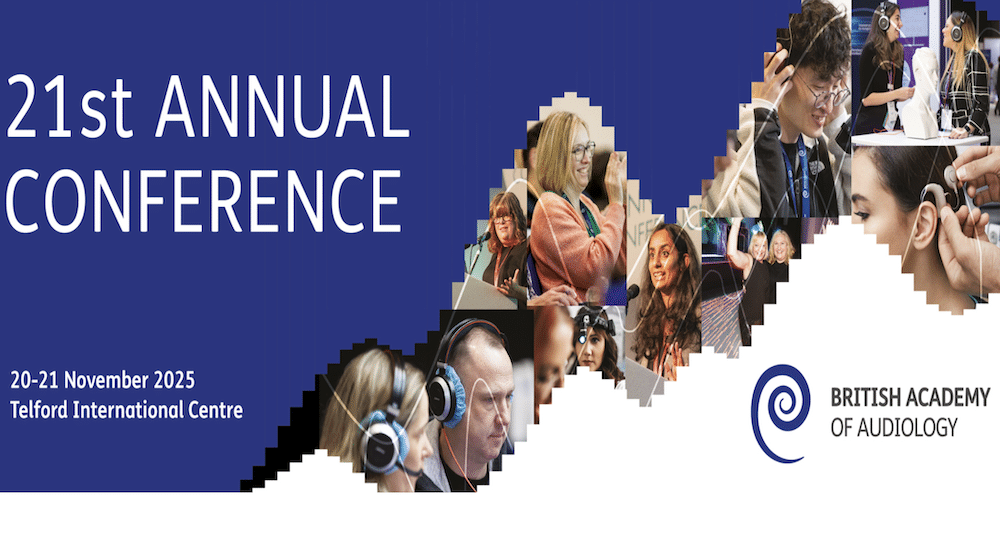Three key strategies for dealing with the potential disruptors in the UK Audiology Market
In issue 147 (March-April) of Audio Infos UK, Ben Colman and Dom Watson from Audiology Business Central outlined the emerging disrupters posing a threat to the independent audiology market in the UK. In the first of two follow-up articles, Ben and Dom now look at the options for independent audiologists to differentiate themselves from the herd and carve out a unique offering that flies in the face of, or even harnesses, the threat of these disrupters.

By Ben Colman (Senior Consultant Audiology Business Central) and Dom Watson (Director Audiology Business Central and Myers La Roche)
Lessons from a parallel market
Hearing aids are medical devices, so over-the-counter hearing aids (OTCs) will never be a thing in the UK, will they?
Almost 20 years ago, this is exactly what the optical sector thought about the prospect of prescription glasses being sold online; by 2020, UK Internet sales of glasses and contact lenses stood at nearly £286 million.
Yet, in our opinion, a more significant threat to independent hearcare providers is the increasing encroachment of high street behemoths Specsavers and Boots into mainstream audiology; they already have huge patient lists to cross-sell to, national trusted brand recognition, and margins and marketing budgets that you could not even begin to imagine.
Fortunately, forewarned is forearmed, and instead of attempting to construct a strategy from scratch to address these twin disruptors, an understanding of what worked and what failed in the optical space gives you a huge advantage and the opportunity to nail your strategy first time in the hearing market.
Strategies for taking on the disruptors that worked in eyecare that are likely to work in independent hearcare:
• Differentiation of service – via specialisation into more niche clinical areas that mainstream providers don’t offer, and utilisation of more state-of-the-art diagnostic equipment that makes you stand out from the crowd and encourage peers and key refers to signpost patients.
• Differentiation of service level – provision of a truly premium level of personalised service (and a high-end, visually attractive practice environment to support this).
• Differentiation of product / pricing – focusing on the 20% of the market that is interested in value, experience, and outcome, not price.
• Good old-fashioned relationship building in local communities
Strategies that failed in optics that are likely to fail in independent audiology:
• Trying to compete on price.
• Trying to operate a similar model and offer a similar level of service to the mainstream (high volume, lower end product and service).
• Trying to be the next James Murray Wells – some so-called experts argue that the best way to deal with disruptors is to become a disruptor yourself. This is exactly what many existing independent operators attempted to do in the optical sector. The dawn of the online glasses age saw hundreds of high street opticians attempt to build online glasses businesses.
Nearly all of them fared extremely badly, often ploughing tens or hundreds of thousands of pounds into doomed ventures and frequently losing significantly more in opportunity costs (i.e., reduced revenues from their core practices because they took their eye off the ball).
The problem is that most eyecare or hearcare practitioners’ skill sets and experience are primarily clinical and customer-facing. It is telling that the most successful online glasses entrepreneur, Glasses Direct founder James Murray Wells, was NOT from an optical background.
Both the skill set and the mindset to run a successful online retail store (healthcare related or other) are completely different from those needed to run a patient-facing practice.
If you sell the same product online as others, the only thing you can compete on is price, and it quickly becomes a race to the bottom. This leaves little or no profit margin and is a recipe for pain. Successful online retail requires scale and differentiation of product, i.e., you either have to create your own brand, or white-label someone else’s product.
We don’t exactly have a glut of hearing aid manufacturers to choose from, so the challenge within hearcare of a small independent practice attempting to sell products online should not need to be spelt out any further. And we have not yet even touched on the subject of being found online and search engine optimisation (SEO), or online advertising costs for non-geographical product-based search strings; there is a whole other article in this riveting subject alone!
Take heed of the lessons from your cousins in the optical sector, and you and your business should not only survive but thrive in the face of the disruptors. We know this because we (and our parent company Myers La Roche) are frequently helping practice owners to build and sell independent optical and audiology practices for figures in excess of seven figures.
Head in the sand approach will leave you begging
The way audiology services are delivered is changing and the pace of this change is increasing each year. Your options are to be a responder to these trends by watching what external drivers of these changes do and reacting accordingly. This “head in the sand” defensive approach is likely to leave you at the mercy of larger operators with bigger budgets dictating your business success over the coming years.
Alternatively – you could start to take control of your own destiny and drive these changes in your local area. Being a pioneer isn’t for everyone, but get it right and you will find it extremely rewarding – both financially and personally.
Our top 3 tips to help you thrive in the face of the disruptors
1. Be honest, proactive, and paranoid
Before you get the wrong end of the stick, we do NOT want practice owners losing sleep over the threat of the disruptors. But we ARE keen for independent operators to avoid complacency, or worse, take the ostrich approach and deny that there is any risk at all.
One thing is certain, the world does not stand still; neither should you.
Some businesses will be more vulnerable to disruptors than others.
Take stock of your current situation and ascertain the likely risks to your current set up and model. Use any current or future risks and threats to motivate you and your team to even higher levels of performance; aspire to build a business so strong that it will thrive in the face of whatever changes occur to the sector and to local or national economic conditions.
2. Focus On the Human Touch
People buy from people – much bandied about but oh-so true!
When you’ve been in business for a number of years, a new entrant cannot hope to offer the same level of personal touch that you can. You should be actively working your network of customers and contacts so they defer to you for advice and guidance when something new appears on the horizon, relying on the trust you have built up with them over many years.
Active references are so important. Every satisfied customer has the potential to create your next customer. Look after and develop your active references so they talk about the excellent service you provide and how trustworthy they regard you as a healthcare professional. This will grow your sphere of influence and generate new customers who will come to you before considering anywhere else.
3. Become The Go-To Specialist
Position yourself and your business as the audiology specialist in your local area – a Centre of Excellence – offering a unique quality of service backed up by a level of expertise that cannot be found anywhere else, least of all from a new entrant promoting whatever the latest fad or trend may be (OTC hearing aids for example).
With a limited number of hearing aid manufacturers effectively controlling product choice, it can be difficult, solely on a product level, to offer something different from your competitors. You should leverage your position as a professionally qualified healthcare specialist by offering a comprehensive range of audiology services, above and beyond hearing aid sales and wax removal (likely to be all that most consumers think you do), including:
• Hearing testing
• Diagnostic / clinical testing
• Wax removal / microsuction
• Balance / vestibular services
• Hearing aid sales
• Assisted listening devices / custom ear plugs
Source: Audio Infos UK issue 149 July-August 2022




